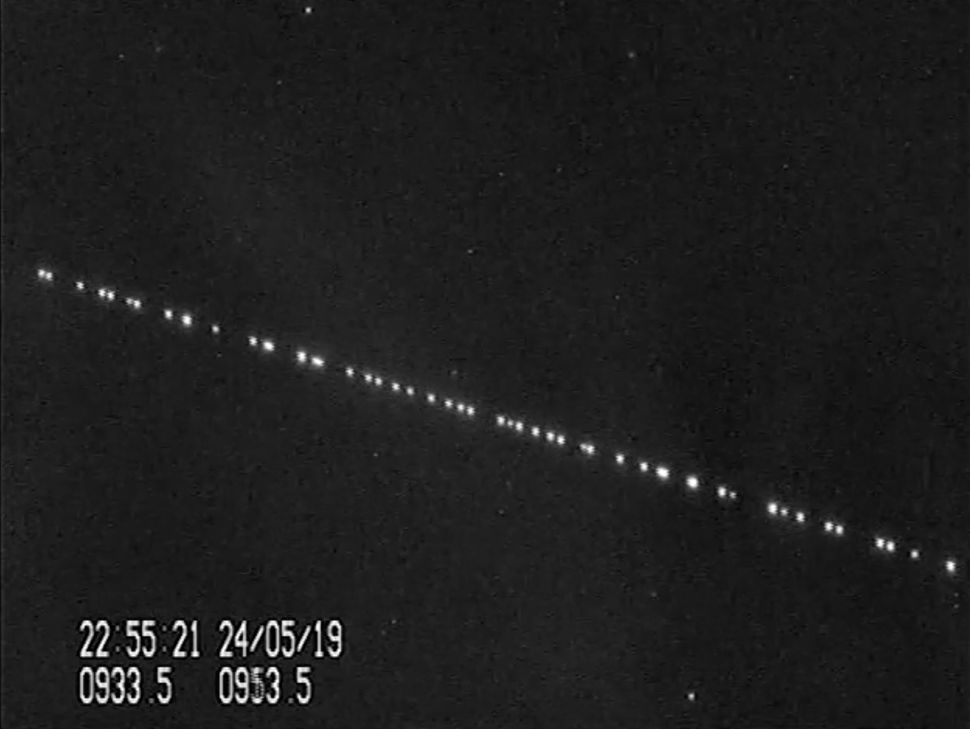Science
Related: About this forumMegaconstellations could destroy astronomy and there's no easy fix
By Paul Sutter about 8 hours

A train of SpaceX Starlink satellites are visible in the night sky in this still from a video captured by satellite tracker Marco Langbroek in Leiden, the Netherlands on May 24, 2019, just one day after SpaceX launched 60 of the Starlink internet communications satellites into orbit. (Image credit: Marco Langbroek via SatTrackBlog)
Paul M. Sutter is an astrophysicist at SUNY Stony Brook and the Flatiron Institute, host of "Ask a Spaceman" and "Space Radio," and author of "How to Die in Space." Sutter contributed this article to Space.com's Expert Voices: Op-Ed & Insights.
Over the next few years, companies across the world are planning to launch tens of thousands of satellites into orbit to provide global high-speed internet access. But that access comes at a cost: It will pollute the skies and contaminate astronomical observations.
So is there a way to fix it? A team of researchers has modeled the effects of these satellites and explored various mitigation strategies. The answer, it seems, is not easy.
Starlink, OneWeb, Kuiper, SatNet — these are just the beginning of the megaconstellations that will launch into Earth orbit over the coming years. Each will provide its own network of high-speed global internet access.
The rise in orbiting satellites is astounding. There are currently more than 3,300 active artificial satellites in Earth orbit, according to the Union of Concerned Scientists, a science advocacy group. Meanwhile, the scientists behind new research note, generation 1 of SpaceX's Starlink will, by itself, consist of 11,926 satellites, and generation 2 will have 30,000 more. OneWeb, Amazon's Kuiper and China's SatNet combined will deploy over 20,000 satellites.
More:
https://www.space.com/megaconstellations-could-destroy-astronomy-no-easy-fix?utm_source=notification
Blues Heron
(8,524 posts)the sky will just be a milky glow all night long.
Javaman
(65,417 posts)but I agree, the thought of constant light is terrifying.
